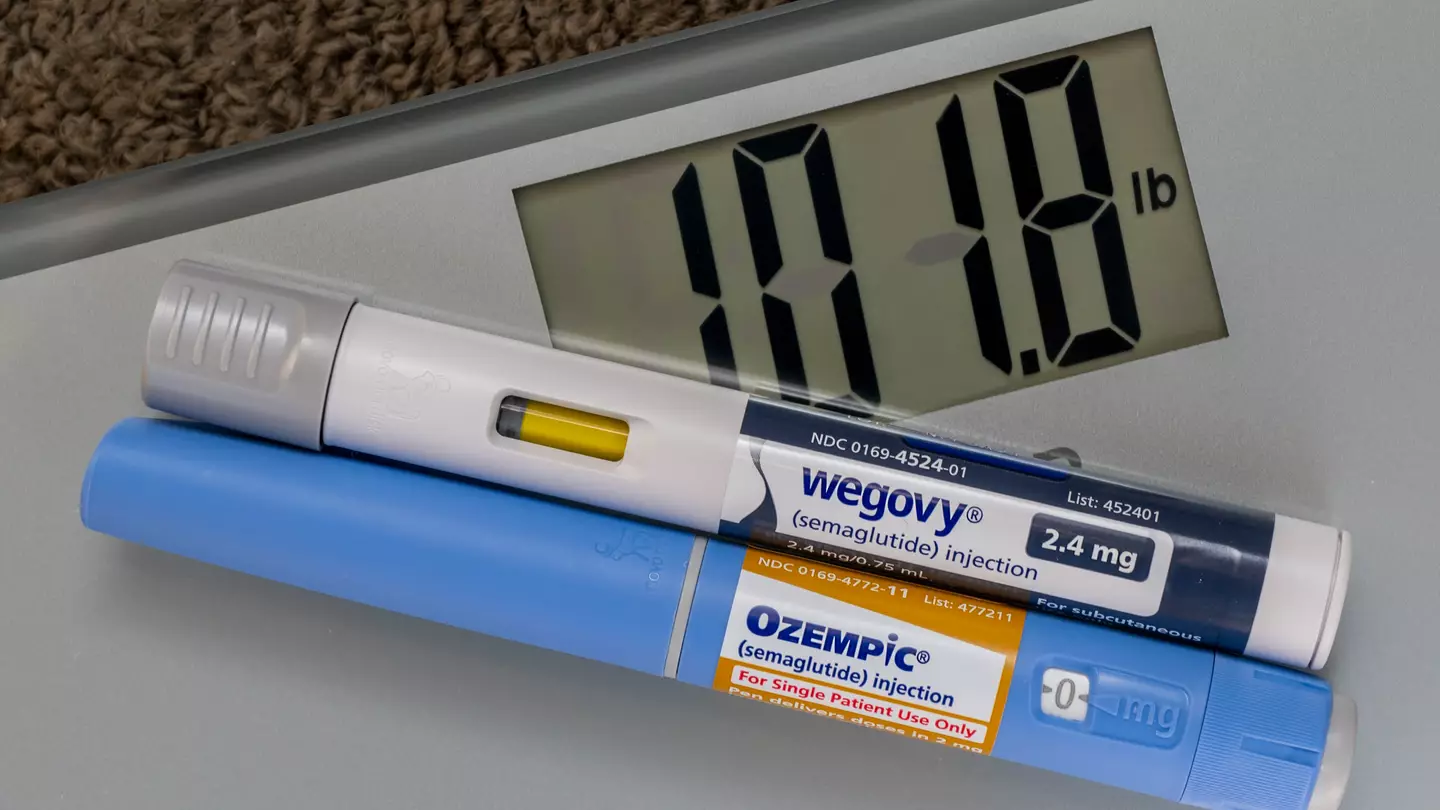
Doctors have warned over the side effects of Ozempic, Mounjaro and Wegovy.
This comes as the weight-loss treatments are becoming much more widely known and discussed in the UK.
Primarily prescribed for those with Type-2 diabetes, various celebrities have already opened up about the side effects they experienced from the drugs.
And now doctors and The Royal Osteoporosis Society (ROS) are warning that some users may end up losing vital muscle and bone mass rather than just shedding off the weight they hoped.
Advert
While reduced bone density can raise the risk of osteoporosis, a scientist and author has shared the risks of losing muscle mass while on drugs like Ozempic and Wegovy.
What do Ozempic, Mounjaro, and Wegovy do?
All three of the self-injectables are primarily used to treat for Type-2 diabetes but Mounjaro and Wegovy are licenced in the UK to be prescribed for weight loss.

They are all GLP-1 receptor agonists. GLP-1 is usually released in your body after eating, sending a signal to your brain that you’re full up and delaying the emptying of your stomach.
The treatments contain an active ingredient that mimics this and therefore helps you to feel full and eat less.
Mounjaro contains tirzepatide while Ozempic and Wegoy contain semaglutide. Essentially, the drugs helps you feel full and eat less.
Irreversible ‘side effect’
Speaking to LADbible group, Julia Thomson, ROS Nurse Manager and Osteoporosis Specialist Nurse, said: “It has long been recognised that extreme and rapid weight loss can impact negatively on bone and muscle mass, this is a risk regardless of the way in which weight is lost. We are unaware of any other mechanism (other than the weight loss) via which GLP1’s may impact negatively on bone. It is important to remember that there are also many health risks associated with obesity (including osteoporosis).
“A balance is required, but this can only be achieved if these drugs are used under the care of a responsible prescriber such as a GP or recognised online provider. This ensures that GLP1’s are prescribed appropriately to those who need it, weight loss is monitored, and nutritional support is provided. A good well-balanced calcium and protein rich diet is particularly important for bones, and it is vital to stay active and incorporate regular exercise into your routine to ensure that bones stay strong and healthy. For more information on how your lifestyle can help your bones please visit the ROS website (www.ros.org.uk)."
Warning of osteoporosis and losing muscle mass, Dr. Taher Mahmud, founder of the London Osteoporosis Clinic, added: “It is essential that those taking GLP-1 agonists know about the importance of good nutrition and weight-bearing exercise.”

Risks of losing muscle mass
Separate to the warning over osteoporosis, Dr John Jaquish spoke to FOX5 Las Vegas about the risks of losing muscle mass as he claimed if you lose musculature ‘you’re limiting your life’.
He also reckons that as those using the drugs eat less, they are likely consuming less protein making them ‘unhealthy’ without ‘even knowing it’.
The doctor refers to muscle as people’s ‘longevity organ’ as he says: “As we age, one of the primary reasons that we are driven towards death earlier is frailty.
“And what it means is you don't have enough muscle to place enough demand on your organs so that they function correctly, so the organs and musculature have a symbiotic relationship, and they need each other.”
Another risk of losing muscle mass is that you are at higher risk of injury such as fractures from falls. It also reduces physical function. However, losing muscle mass is reversible with the likes of resistance training, consuming a high-protein diet and having good rest and hydration.
LADbible contacted the ROS, Novo Nordisk and Eli Lilly for comment.